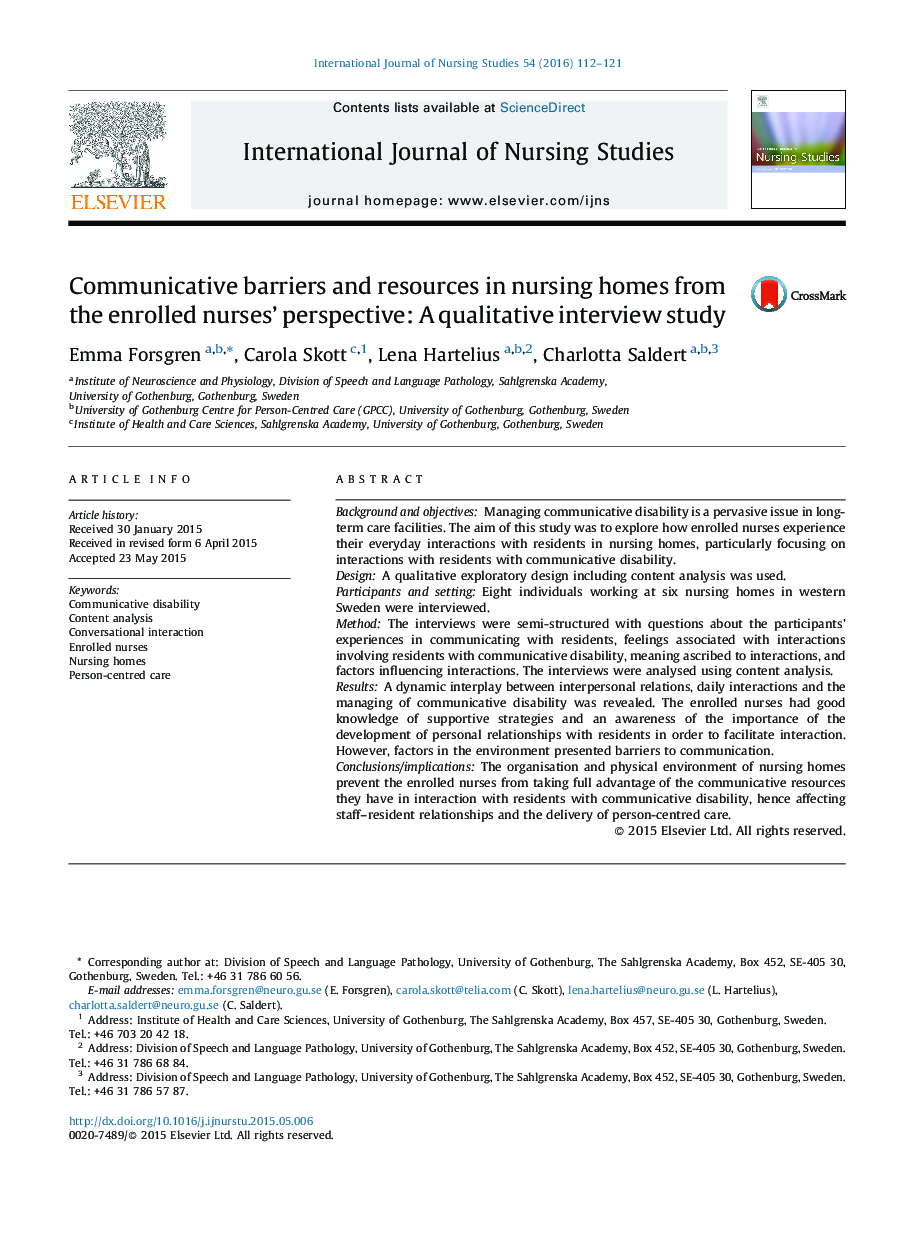| Article ID | Journal | Published Year | Pages | File Type |
|---|---|---|---|---|
| 1076125 | International Journal of Nursing Studies | 2016 | 10 Pages |
Background and objectivesManaging communicative disability is a pervasive issue in long-term care facilities. The aim of this study was to explore how enrolled nurses experience their everyday interactions with residents in nursing homes, particularly focusing on interactions with residents with communicative disability.DesignA qualitative exploratory design including content analysis was used.Participants and settingEight individuals working at six nursing homes in western Sweden were interviewed.MethodThe interviews were semi-structured with questions about the participants’ experiences in communicating with residents, feelings associated with interactions involving residents with communicative disability, meaning ascribed to interactions, and factors influencing interactions. The interviews were analysed using content analysis.ResultsA dynamic interplay between interpersonal relations, daily interactions and the managing of communicative disability was revealed. The enrolled nurses had good knowledge of supportive strategies and an awareness of the importance of the development of personal relationships with residents in order to facilitate interaction. However, factors in the environment presented barriers to communication.Conclusions/implicationsThe organisation and physical environment of nursing homes prevent the enrolled nurses from taking full advantage of the communicative resources they have in interaction with residents with communicative disability, hence affecting staff–resident relationships and the delivery of person-centred care.
